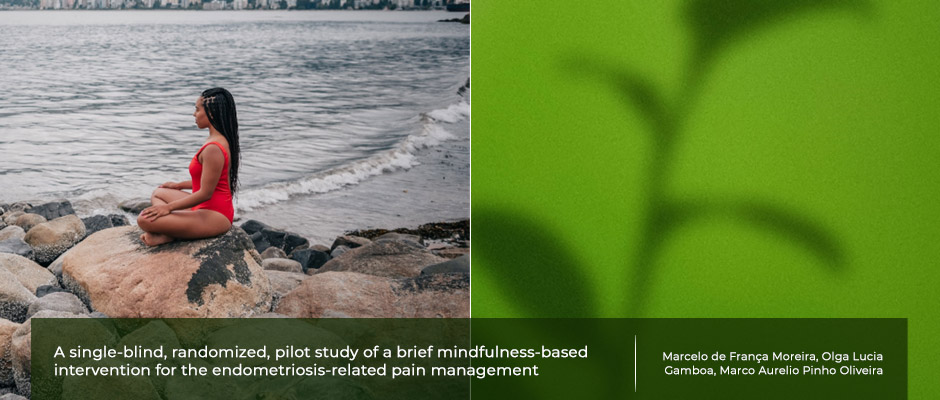Mindfullness Can Hep Reduce Endometriosis Pain
May 3, 2022
"Mindfulness in conjunction with standard medical treatment can reduce endometriosis-associated pain" according to the results of a new clinical trial.
Key Points
Highlights:
- A brief mindfulness-based intervention can help manage endometriosis pain.
Importance:
- This finding reinforces the potential use of mindfulness-based interventions in the management of endometriosis patients.
What's done here:
- Researchers conducted a randomized controlled trial to assess the effect of a brief mindfulness-based intervention in managing endometriosis-associated pain.
Key results:
- A brief mindfulness-based intervention used together with standard medical treatment significantly reduced the unpleasantness of the pain and improved pelvic pain and dyschezia straight away.
- It decreased all endometriosis-related pain at follow-up.
Limitations:
- The dropout rate from the study was quite significant (20%) and could have produced bias.
- The study only took wight weeks and the results might have been different in a longer period of time.
- It is not clear whether participants adhered to the treatment protocol.
- The blindness of the study was not formally assessed, which could introduce bias.
Lay Summary
A brief mindfulness-based intervention can be useful in managing pain related to endometriosis and restoring patients’ psychological well-being, found a new study published in the European Journal of Pain. This finding contributes to the applicability of mindfulness-based interventions in people living with chronic pain.
Endometriosis can cause debilitating pain and have a great negative impact on the quality of life of women living with it. Although laparoscopic deep excision surgery, the gold standard endometriosis treatment, can alleviate pain symptoms in some women, others may continue to experience pain even after treatment. For others still, pain and other symptoms may recur. There are also medical treatments available that may reduce pain in some patients with the disease but these also do not work for everyone.
Here, a team of researchers led by Dr. Marco Pinho de Oliveira from the Department of Gynecology, State University of Rio de Janeiro in Brazil investigated the effects of a brief mindfulness-based intervention in women with deep endometriosis who continued to have pain symptoms even after conventional medical treatment.
The researchers conducted a randomized controlled trial in 63 women with endometriosis in which the participants were divided into two groups. The women in the first received standard medical treatment plus a brief mindfulness-based intervention program while those in the second only received standard medical treatment.
The primary outcome measure of the trial was endometriosis-related pain. Secondary outcome measures were quality of life and stress perception following treatment.
The results showed that the brief mindfulness-based intervention significantly reduced the unpleasantness of the pain. It also improved pelvic pain and constipation due to voluntary suppression of defecation. These results were obtained immediately after the treatment. At the follow-up, all endometriosis-related pain was decreased.
The researchers also found that the brief mindfulness-based intervention had an extensive positive effect on women's mental health and vitality at follow-up. These findings underscore the need for a biopsychosocial perspective on endometriosis treatment.
Research Source: https://pubmed.ncbi.nlm.nih.gov/35276031/
mindfulness pain clinical trial well-being quality of life stress defecation endometriosis mental health biopsychosocial debilitationg

